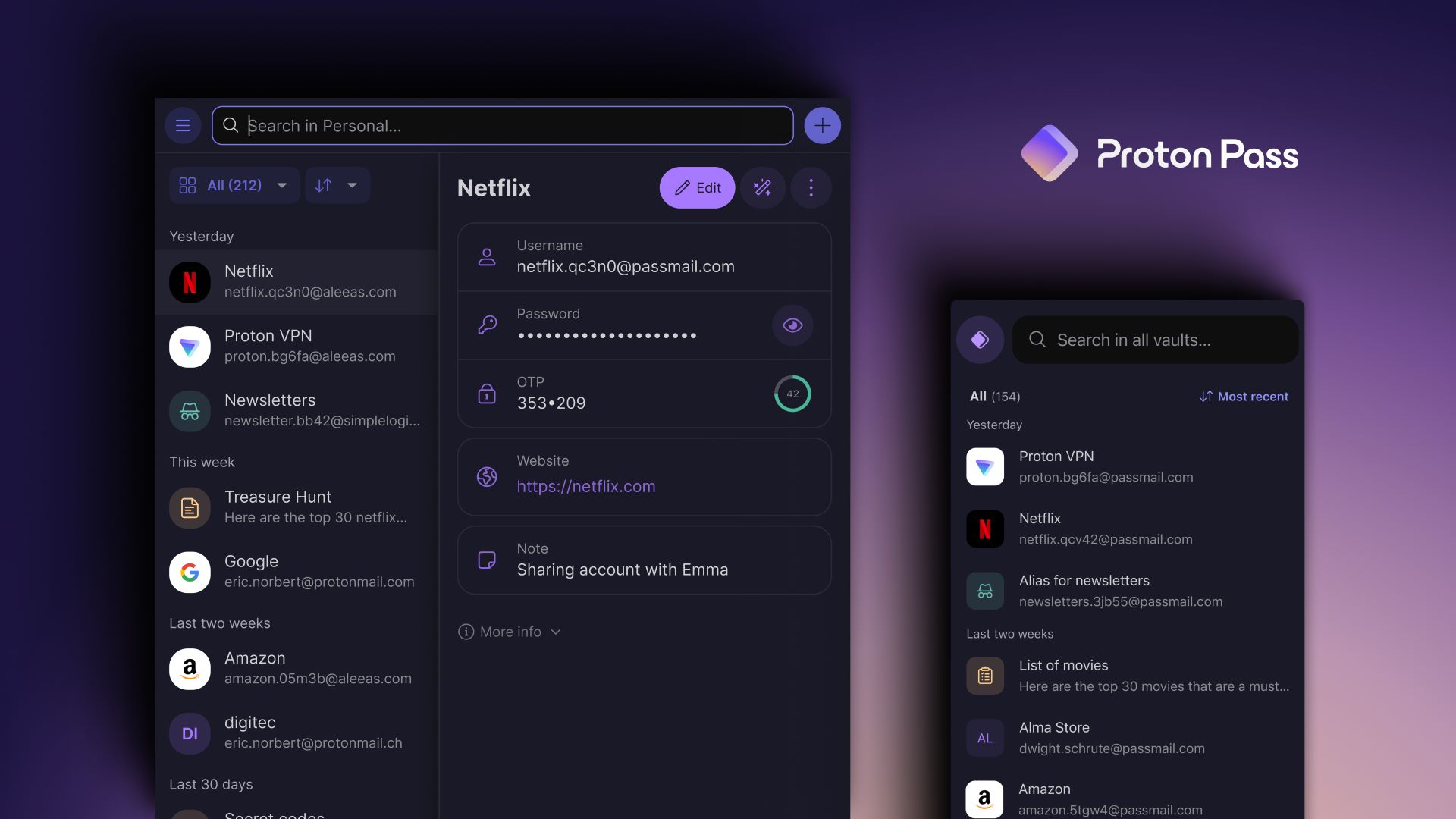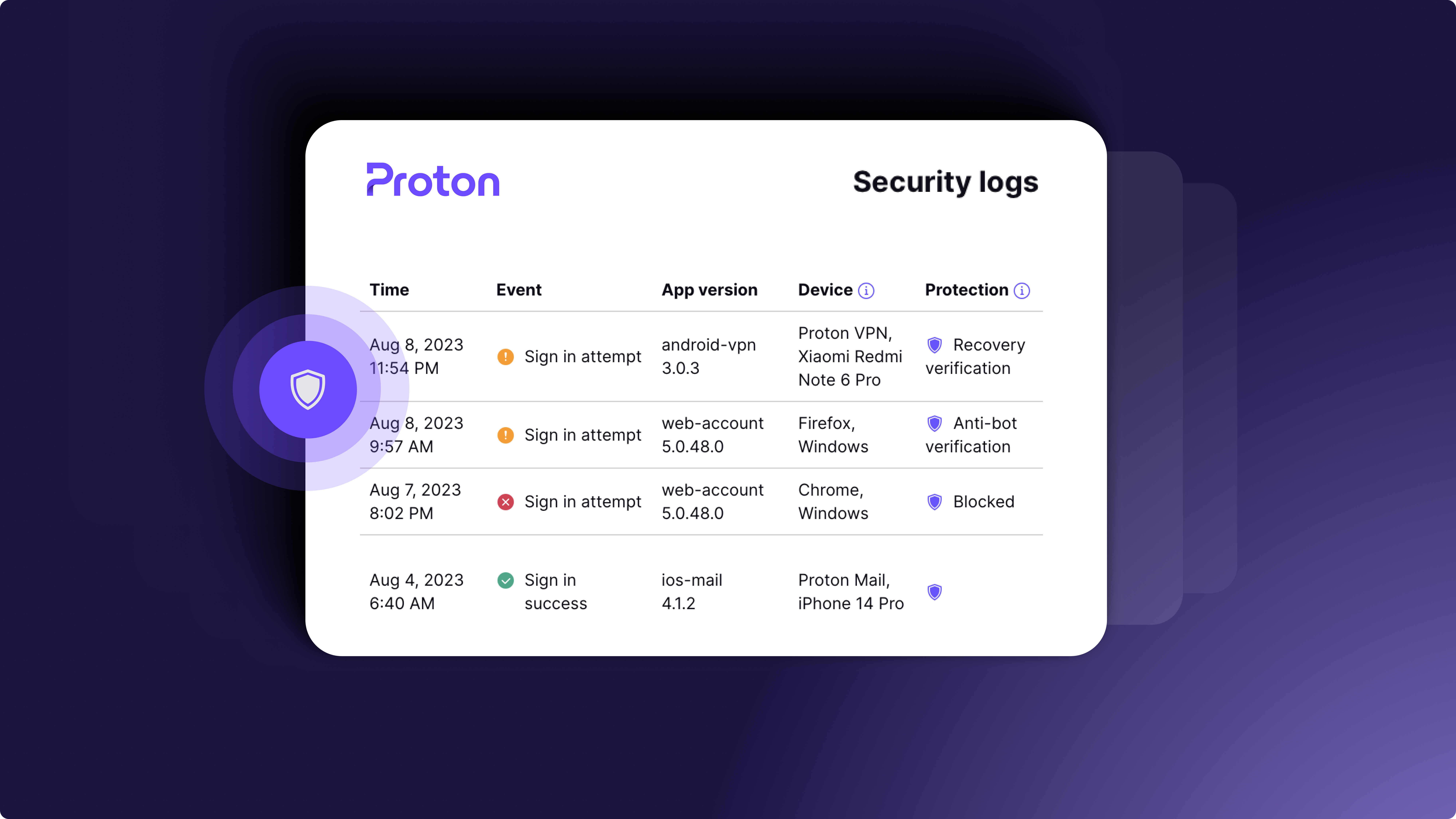Proton Pass users now have even more ways to protect their digital privacy
Plus subscribers can now benefit from Proton Sentinel

As of November 30, 2023, Proton's new password manager tool gives users even more ways to protect their digital privacy.
In addition to encrypting passwords, logins, private notes, financial details, and even metadata, anyone subscribed to the Proton Pass Plus plan can enroll in the provider's exclusive protection program for users at higher risk of cyberattacks.
The Swiss company—also behind the homonymous secure email, encrypted cloud storage, and VPN service—promises that this will prevent attackers from accessing your data, even in the event that your Proton Account username and password have been leaked.
What is Proton Sentinel?
"Proton Pass helps millions of people safeguard their passwords and other login information with end-to-end encryption and publicly audited open-source code. Now, we’re providing even more protection for your most sensitive information. Starting today, everyone with a Proton Pass Plus plan will have access to our high-security Proton Sentinel program," announced the provider.
Launched in August this year, Proton said that this high-security protection program has already blocked over 3,000 account takeover attacks. By combining AI monitoring capabilities with human expertise, Sentinel can detect, identify, and challenge any suspicious activities on user accounts.
"Proton Sentinel does this well because it leverages the lessons we learned building Proton’s anti-abuse systems that protect over 100 million accounts. These systems have seen a vast number of login attempts and are able to correctly characterize and identify threat actors on a massive scale," explained Proton.
Introducing Proton Sentinel, a high security program for notable users who may be at higher risk of cyberattack. The Proton Sentinel program combines AI with human analysis to provide 24/7 security monitoring for enrolled accounts. Learn more here: https://t.co/vNArxuPdG0 pic.twitter.com/VgjXAyhuDVAugust 16, 2023
On its side, Proton Pass encrypts all the data locally on the device so that every bit of data transmitted to the server is always encrypted. This also means that not even the provider can access or decrypt stored data. Sensitive information is then stored in data vaults, making it easier to organize.
Get daily insight, inspiration and deals in your inbox
Sign up for breaking news, reviews, opinion, top tech deals, and more.
At this point, you might be wondering why you'd need Sentinel's extra protection layer if your data is already covered by such a strong level of security. The answer, as explained by Proton, is that password managers offer "little to no protection against user compromise."
This means that while the password manager acts as your "identity guardian" by encrypting all the most sensitive aspects of your digital life, Sentinel always has your back, even if you fall victim to phishing attacks or other social engineering scams that coerce you into disclosing your login credentials or passwords to bad actors.

In its short life span, Proton Pass has already demonstrated a strong commitment to enhancing its users' privacy.
After officially launching for all users back in June, Proton Pass expanded its features in October to allow everyone to securely share sensitive information without compromising privacy. The provider wanted to put you in charge of deciding exactly who sees your logins, passwords, credit cards, notes, and other personal details you might share. The addition of Proton Sentinel is the natural next step in the provider's plan to improve its security reach.
Unlike many competitors, Proton Pass also comes with a free plan offering unlimited password protection, device access, and more. However, you'll need to upgrade to its Plus plan to be able to enjoy Proton Sentinel's extra security. This will cost you the equivalent of less than a fiver a month and it comes with a 7-day free trial for new users, as well as a 30-day money-back guarantee.
This high-security program was initially designed for users who may be at greater risk of cyberattacks, but the truth is that everyone can fall victim to fraudsters. To enroll, simply login to your Proton account, visit the Security and Privacy tab, and click the toggle switch next to Enable Proton Sentinel.
Disclaimer
We test and review VPN services in the context of legal recreational uses. For example: 1. Accessing a service from another country (subject to the terms and conditions of that service). 2. Protecting your online security and strengthening your online privacy when abroad. We do not support or condone the illegal or malicious use of VPN services. Consuming pirated content that is paid-for is neither endorsed nor approved by Future Publishing.

Chiara is a multimedia journalist committed to covering stories to help promote the rights and denounce the abuses of the digital side of life – wherever cybersecurity, markets, and politics tangle up. She believes an open, uncensored, and private internet is a basic human need and wants to use her knowledge of VPNs to help readers take back control. She writes news, interviews, and analysis on data privacy, online censorship, digital rights, tech policies, and security software, with a special focus on VPNs, for TechRadar and TechRadar Pro. Got a story, tip-off, or something tech-interesting to say? Reach out to chiara.castro@futurenet.com